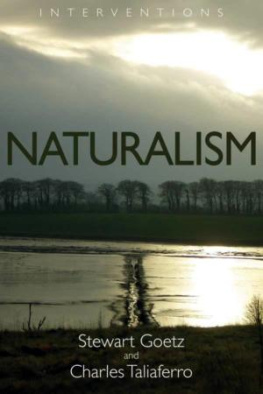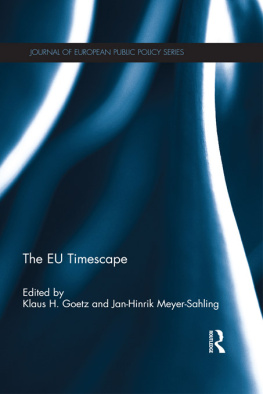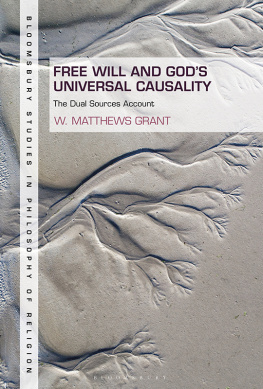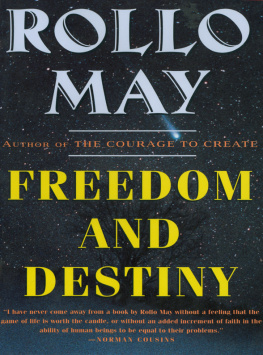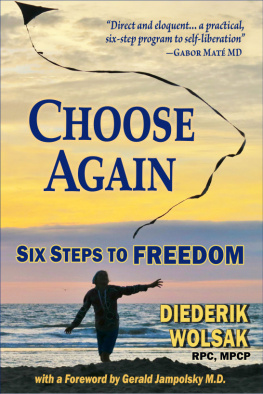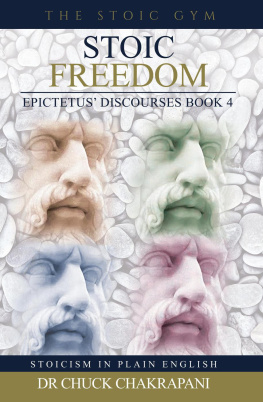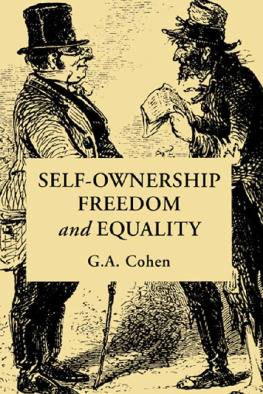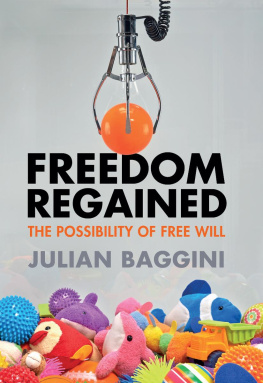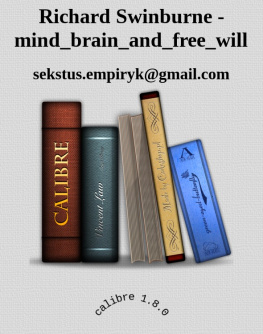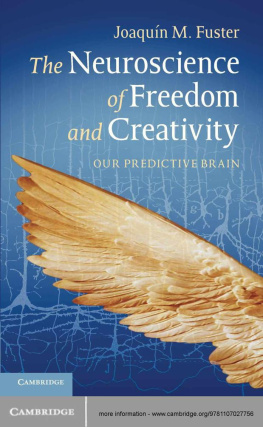Freedom, Teleology, and Evil
Continuum Studies in Philosophy of Religion
Series Editor:
Stewart Goetz
Editorial Board:
Thomas Flint, Robert Koons, Alexander Pruss, Charles Taliaferro,
Roger Trigg, David Widerker, Mark Wynn
Freedom, Teleology, and Evil
Stewart Goetz

Published by T&T Clark
A Continuum imprint
The Tower Building, 11 York Road, London SE1 7NX
80 Maiden Lane, Suite 704, New York, NY 10038
www.continuumbooks.com
All rights reserved. No part of this publication may be reproduced or transmitted in any form or by any means, electronic or mechanical, including photocopying, recording or any information storage or retrieval system, without permission in writing from the publishers.
Copyright Stewart Goetz, 2008
Stewart Goetz has asserted his right under the Copyright, Designs and Patents
Act, 1988, to be identified as the Author of this work.
British Library Cataloguing in Publication Data
A catalogue record for this book is available from the British Library
Typeset by RefineCatch Limited, Bungay, Suffolk
Printed and bound in Great Britain by Biddles Ltd, Kings Lynn, Norfolk
eISBN-13: 978-1-4411-0189-1
CONTENTS
ACKNOWLEDGEMENTS
I am indebted to so many along the way for their thoughtful discussion and criticism of most of the ideas in this book. They include Michael Bergmann, Michael Bratman, David Charles, Randolph Clarke, Carl Ginet, William Hasker, Robert Kane, Michael McKenna, Alfred Mele, Timothy OConnor, Derk Pereboom, and William Rowe. Those who deserve special recognition are John Martin Fischer, Thomas Flint and David Widerker. Their prodding and encouragement was instrumental to bringing this project to a close. I also want to thank the John Templeton Foundation for a grant that enabled me to finish the manuscript. Finally, I dedicate the book to my wife, Carolyn, with whom I have shared so much of what is good in life.
CHAPTER 1
INTRODUCTION
1.1 Uncaused Choices
After a discussion about free will in the early years of my philosophical education, one of my professors informed me that I was a libertarian. Because I was not quite sure what a libertarian was, I asked this professor what I should read. You should take a look at stuff by Roderick Chisholm, he replied. With no more guidance than this, I headed to the library. I subsequently read Chisholms book Person and Object, Though I discovered a kindred spirit in Chisholm, his view that agents are causes puzzled me. My belief in libertarianism arose out of my first-person experience as an agent, and the fundamental data provided by that experience simply did not include my agent-causing an event of some kind. Chisholm, however, had whetted my intellectual appetite. Thus, my long-term project for the years ahead would be to articulate what I came to think of as a noncausal theory of agency.
From the very beginning, the work on this project was not easy. Most philosophers disputed what I regarded as fundamental data. As a graduate student, I encountered faculty mentors who thought that libertarianism was synonymous with agent causation. The idea that we could have libertarian freedom without agent causation was for them literally self-contradictory. In this environment, I had a very difficult time making any intellectual progress. I thought that I had some interesting ideas that could be developed into a coherent and plausible noncausal view of libertarian freedom, but no one took these ideas seriously. Then one afternoon, everything changed. The grand master himself, Roderick Chisholm, arrived for a campus visit and delivered the first of a series of three lectures. I remember sitting in a packed room and listening as Chisholm talked about things agential in nature, but without mentioning agent causation. At the end of his talk, it was time for questions and answers. One of my mentors raised his hand and proceeded to ask a question about agent causation that I thought was designed for no other purpose than to put the final nail in my intellectual coffin. I waited anxiously for Chisholms response, and, when it came, I experienced one of those rare moments when all seems right with the world. I no longer believe in agent causation, answered Chisholm. The mentor who had asked the question was, to put it mildly, dumbfounded. I turned to look at another of my mentors who was sitting about six seats away. He slowly turned his head toward me, and our eyes met. His look is one I shall never forget. As Chisholm continued his answer, he explained how he thought one might have libertarian freedom without agent causation. His explanation was no more intellectually satisfying for me than was the idea of agent causation. But I didnt care at that point. All I knew that afternoon was that there was intellectual life for me.
The following day, Chisholm invited the second of the mentors just mentioned and me to his hotel room for a private conversation. I do not know what he thought about my ideas that day. One comment of his, however, still sticks in my mind: I invented agent causation to solve a problem that I now think can be solved without it. You invented agent causation? I recall mumbling to myself. Invented it? I left that face-to-face meeting, which was the only one I would ever have with Chisholm, with those words echoing over and over in my mind.
What was the problem that Chisholm initially thought could not be solved without agent causation? It was fundamentally a dilemma about the need for and nature of an explanation of an event. On the one hand, he had believed that an event that is not causally determined is inexplicable and, therefore, a random occurrence. On the other hand, he had thought that if a free action is caused, its cause would have to be another event. Moreover, if an event were caused by another event, it would be part of a deterministic causal chain and, therefore, could not be a free action. In order to pass through the horns of this dilemma, Chisholm claimed he had invented the idea of agent causation. Not only are there event-causes, but there are also agent-causes. And because these agent-causes are not event-causes, they cannot (or at least they need not) themselves be caused to cause the events that they cause. Hence, libertarian freedom is possible without free actions being inexplicable, random occurrences.
It was an intriguing idea, and one that I was to discover was not literally invented by Chisholm. At least it seemed to me that he did not invent it. Because of Chisholms own work on Thomas Reid, I was learning that Reid was an agent causationist. Whatever the correct history was of Chisholms coming up with the idea of agent causation, I remained convinced that it was possible to have libertarian freedom without agent causation. That firm conviction finally led to the writing of this book twenty years later.
1.2 The Importance of Teleological Explanation
As I mentioned in the previous section, a fundamental datum of my experience as an agent is that I make choices without agent-causing anything. Because of this, agent causation has never found a place in my view of libertarian freedom. In the earliest days of my struggle to develop a noncausal view of libertarian freedom, others with libertarian intuitions and a shared skepticism of agent causation (including Chisholm himself) were seeking to articulate alternative conceptions of incompatibilist freedom. Unlike me, however, they were developing their views from within an explanatory framework that was still essentially causal in nature. While they held that all causation is event causation, they attempted to make room for libertarian freedom by sundering the connection between event causation and determinism. As they envisioned things, event causation is a genus with species, one of which is deterministic in nature while another is not, and the latter could be used to develop an account of libertarian freedom.
Next page

